I can’t pinpoint the exact moment I transformed from a person into a disgruntled little troll, but it was sometime during the month of April.
To be clear, I mean troll as a noun not a verb. I would never harass anyone, online or otherwise, but am not above mumbling and grumbling and assuming the countenance of those sad, shriveled inhabitants of Ursula’s garden in the 1989 version of The Little Mermaid.
The genesis of my descent into troll-hood is nothing special — a culmination of unreasonable personal expectations and triggers often emanating from my phone. The more I pushed, the harder it became to harness a single creative thought, let alone spin it into coherent work. When I witnessed others’ ability to do just that — without knowing the reality of how it came to be — it felt like a personal affront.
Sometimes you take a break, and sometimes the break takes you. However it happened, I broke, with the hope that stepping away from the newsletter would offer me perspective and renewed creative focus.
(Spoiler alert: It did. But not in the way I expected.)
*
In theory, my ideal hiatus took place in a cave, or a slightly more social version of a sensory deprivation tank. (Alas, the days-long “dark retreats” that are all the rage with the tech bro set are well beyond my means.) If I could shield myself from the endless barrage of shows and posts and videos always in my peripheral vision, and quiet the constant stream of others’ voices, perhaps I could re-access my own.
But when my thumbs sought out the usual channels without my brain’s consent (isn’t it fun how that happens?) I was surprised by my increased ability to greet them. I read. I looked. I listened. I sought out live music and glossy magazine pages. I let stories and songs and art wash over me, into me, through me. I enjoyed others’ creative contributions without perceiving them as evidence that my own work didn’t stack up.
As it turned out, it wasn’t only a matter of what I saw or how often I consumed it, but the mindset I brought to the table. In the end, the greatest gift of stepping away from the graphs and the grind was the renewed ability to spectate. To step off the stage, away from my ego, and simply enjoy the show.
*
I can almost recite it by memory.
“It is not the critic who counts; not the man who points out how the strong man stumbles, or where the doer of deeds could have done them better. The credit belongs to the man who is actually in the arena, whose face is marred by dust and sweat and blood; who strives valiantly; who errs, who comes short again and again...who at the best knows in the end the triumph of high achievement, and who at the worst, if he fails, at least fails while daring greatly.”
Those words — spoken by Theodore Roosevelt and (re)launched into the zeitgeist by Brené Brown’s viral 2012 TED talk and 2019 Netflix special — serve as a perennial rallying cry for putting oneself out there. (They’re also an excellent disclaimer before plumbing the depths of Reddit.)
I’ll be the first to celebrate the art of trying, to applaud the vulnerability, faith, and grit required of anyone who dares to venture. But I also wonder after the others in the arena — the audience who elevates soliloquy to spectacle. Those who watch and wish, breath held, fingers crossed. Those whose energy permeates the atmosphere. Those who will leave changed.
*
In a world where “main character energy” is touted as a virtue; where being on the sidelines is often framed as an insult; where we’re sold the hustle, in ways overt and insidious; where the scroll is endless and the news cycle never quits, it’s fair to say that spectating — the act of simply beholding, in a focused manner, without seeking distraction or dopamine or personal gain — is something of a dying art.
Yet I’d maintain that beholding is right on par with doing, where both practices are necessary and complementary. We benefit from time in the arena and from holding every seat in the house. How else do we gain an appreciation for others’ contributions — from each side of the equation — and learn to offer and accept support, feedback, and the shape of our individual gifts?
Over the years, I’ve learned to stop and scan if a sour mood might stem from the need to eat or hydrate. Similarly, I’ve started to examine whether a creative slump or anxiety bump or spike in comparison-itis might be driven by the need to do or the need to spectate. To heed the call or fill the cup. To step on the carousel, or off it.
As much as we gain by doing, we also grow by observing. There is value in riding a vicarious horse.
*
Because it’s not realistic to perpetually be on break — from work or devices or headlines or anything that vies for a slice of our precious peace — I thought about how to translate the lessons from my hiatus into something more sustainable.
What was it about this experience that made beholding feel different? What observations could I keep in mind in the future? Here is where I landed…
1. BE OPEN.
I have a friend, I’ll call them Mortimer, with a stunning ability to hate on pretty much anything.
They’ll criticize a movie they haven’t yet watched and complain about a meal while devouring every morsel. They read a lot of books, but always think they could’ve written something better. Mortimer lives in a box of judgment that growth or change could never hope to permeate. Their criticism seems protective in nature, but by being closed off, they are the one who loses out.
When I’m stressed or overwhelmed or riddled with insecurity, I too can regard the world with hackles raised and arms crossed. But judgment creates borders that often don’t serve us.
Opinions are a natural offshoot of personhood. Yet it behooves us to suspend them until after the fact. You may not love a book, but it can still up-level your prose. Your reaction can still teach you something about yourself. Feelings and impressions — whether positive or negative — are information, and information is useful.
Bad work or taste or performance is not a personal affront. Neither is someone else’s success. Gifts lurk in unexpected places. But only if we are open enough to receive them.
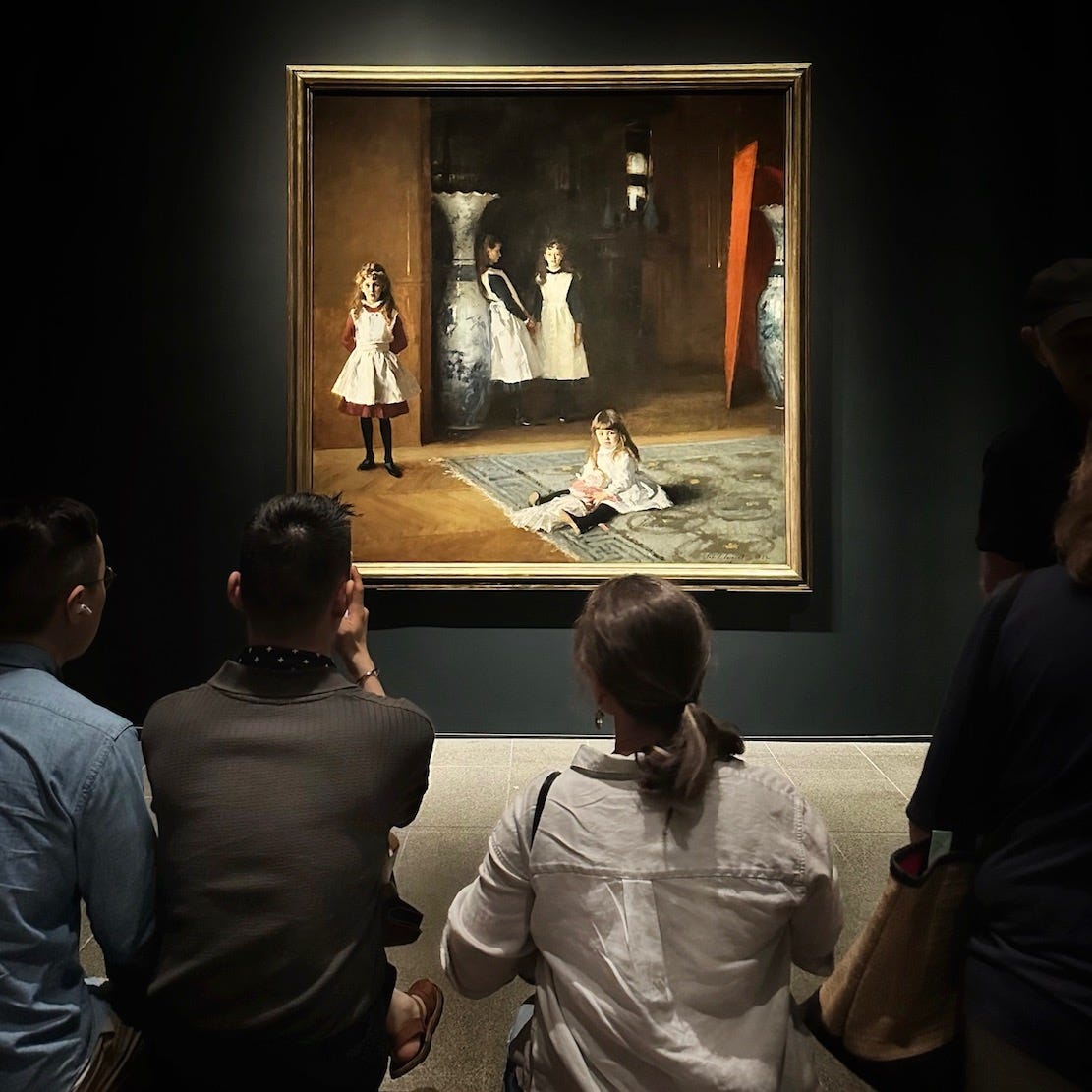
2. BE PRESENT.
SPECTATING IS NOT THE SAME AS SCROLLING. (That’s important enough to warrant caps.) It isn’t always active — you needn’t clap or cheer or comment for it to count — but it isn’t passive. For today’s purposes, I’d define it as being an energetic participant. The act of beholding requires presence, engagement, and some amount of focus. It does not happen mindlessly.
In our screen-addled world, I’ve found it advantageous to proactively seek immersive experiences (live performances, nature, people watching, print media…) and tactile exercises where screens have no place in the equation. Note-taking or sketching can help anchor the experience.
On those occasions when I am beholding something via a screen, whether the NBA finals or a personal essay, I hold myself to a one-screen-at-a-time (and one-tab-at-a-time) rule. I may think that looking up an actor’s age the minute they appear onscreen will enhance my viewing experience, but countless rabbit holes later, I can safely report that it does not.

3. BE HUMAN.
If I am asked one more thing about AI this week, I may revert back to troll-hood. But for today’s purposes, here is all we need to know: I am a person and you are a person, and together we create a connection. We also connect with whatever we behold, whether that’s gazing at a masterpiece or rubbernecking at a heated argument. We seek out art, dates, and Reddit threads with the same general goal: to discover we aren’t alone.
As my friend Mortimer surely intuits, opening yourself up to connection — with a person, or something touched by human fingertips — can also mean risking vulnerability. You might, say, feel oddly devastated when you make a blue-and-orange velvet layer cake and wear your lucky hat for days on end and the Knicks still get knocked out in the Eastern Conference Finals.
But it also means you share in the triumphs.
Being a good spectator asks us to become an emotional shareholder, to bear witness to the joy and heartbreak inherent in humanity, in creation, in the everyday. The risk isn’t the same as it is for the man in the arena, and likely neither is the payday. But we’re invested all the same.
Any way you slice it, connection helps us feel alive. (Which remains one area where robots don’t have anything on us.)
4. BE CHANGED.
Spectating isn’t the same as fanaticism — it demands no mania or loyalty. You needn’t fall in love with what you behold, or even enjoy it. All it asks is for you to entertain it, to let it burrow within your consideration, if only for a little while.
Did you learn something? Did you feel something? Did you allow it to dance from sense to experience, and perhaps to memory? We are free to alchemize our findings and metabolize them as we wish.
If we allow it, beholding stretches our empathy and our sense of what is possible, and leaves us a little different than we were before. If we ride the wave to its conclusion, we may discover some kernel of the universal experience, some new facet of our self.
If we’re lucky, we find that we aren’t alone in that fear, that feeling, that wish. We aren’t alone in the arena. We aren’t alone.
The inimitable Sam Irby’s list of “beauty products i have purchased and enjoyed since i told myself i should stop buying beauty products two years ago because i never consistently use them and they rot” had me audibly cackling on public transit. Worth reading for the hilarity as much as for the solid recs.
Through the Tall Grass, the latest song from Fog Chaser, a newsletter that shares new original instrumental songs for focus, healing, and soothing your nervous system.
I recently stumbled across the delightful Leroy’s Place, an art and gift shop unlike any other. (I found approximately three million things to buy as future gifts, and picked up a little unicorn planter, below.) They have two brick-and-mortar outposts, in Brooklyn and New Orleans, and an online shop to browse from anywhere.
If you’ve been reading for a while and are accustomed to Sunday letters ending with a card for reflection, don’t worry, that will still have a regular presence here. (Next week’s newsletter, for paid subscribers, will include a special reading.)
As always, thank you for being here.




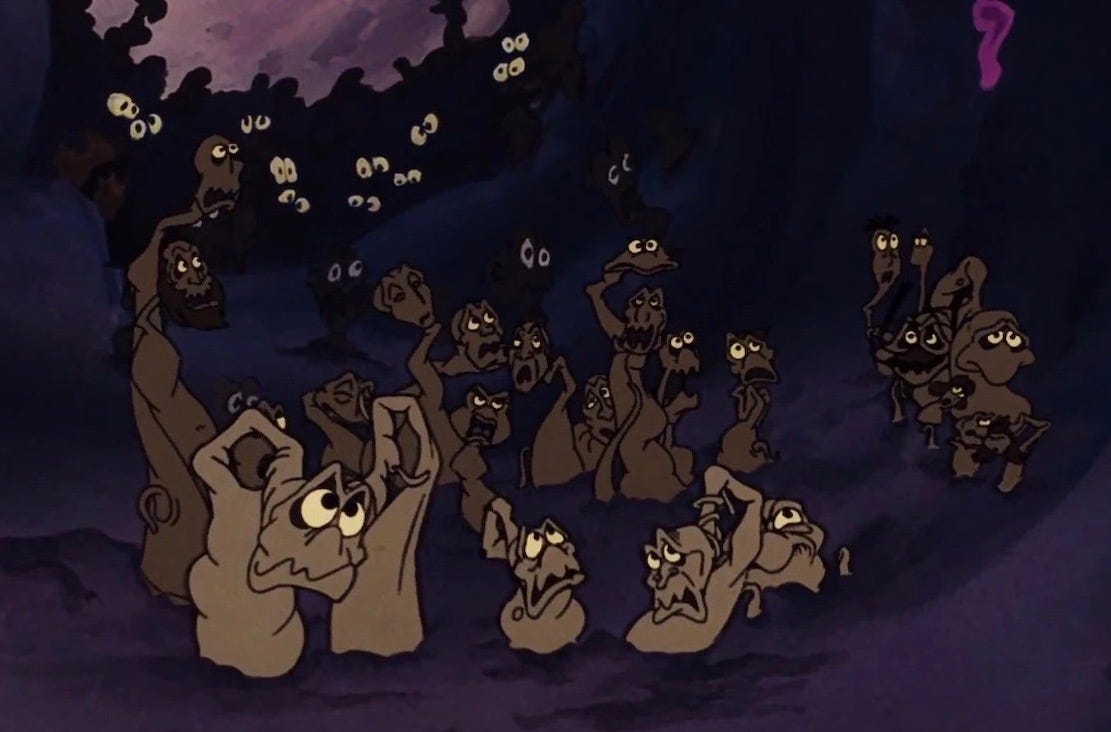
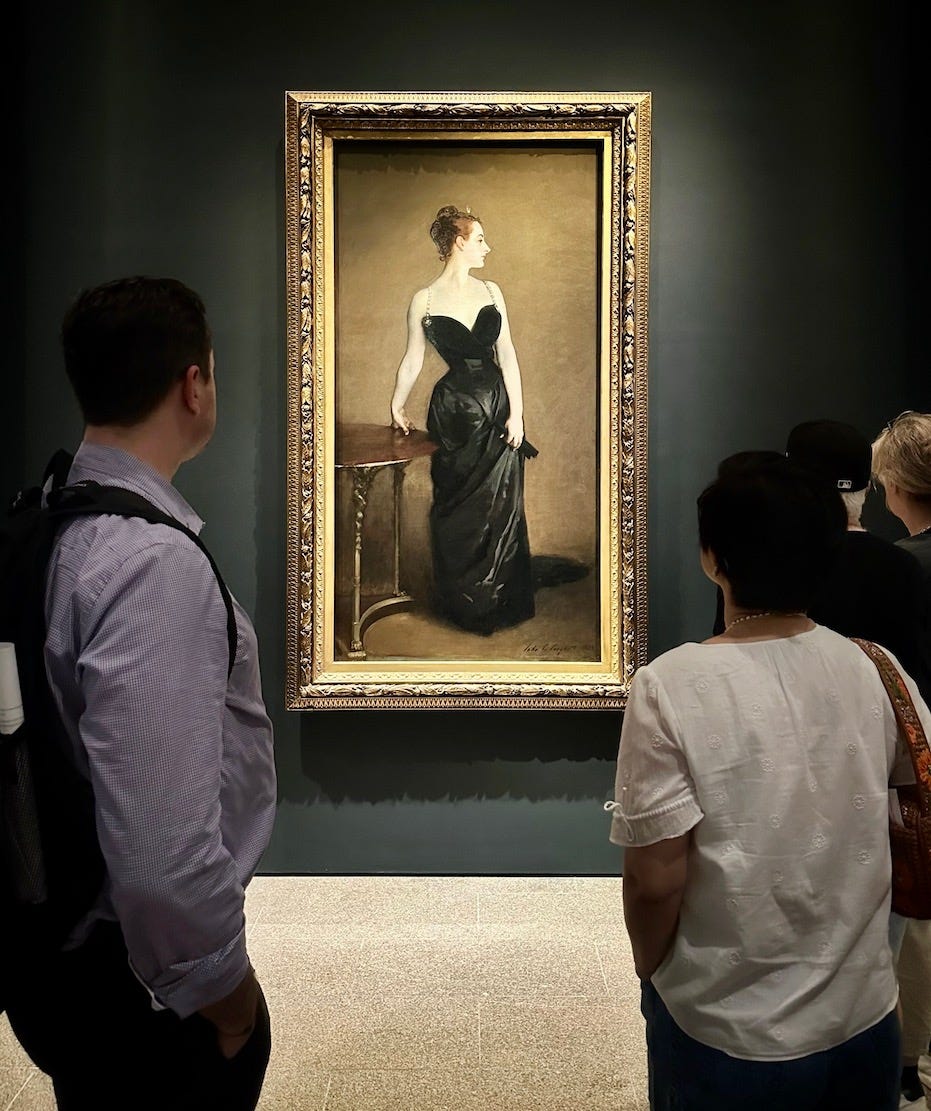
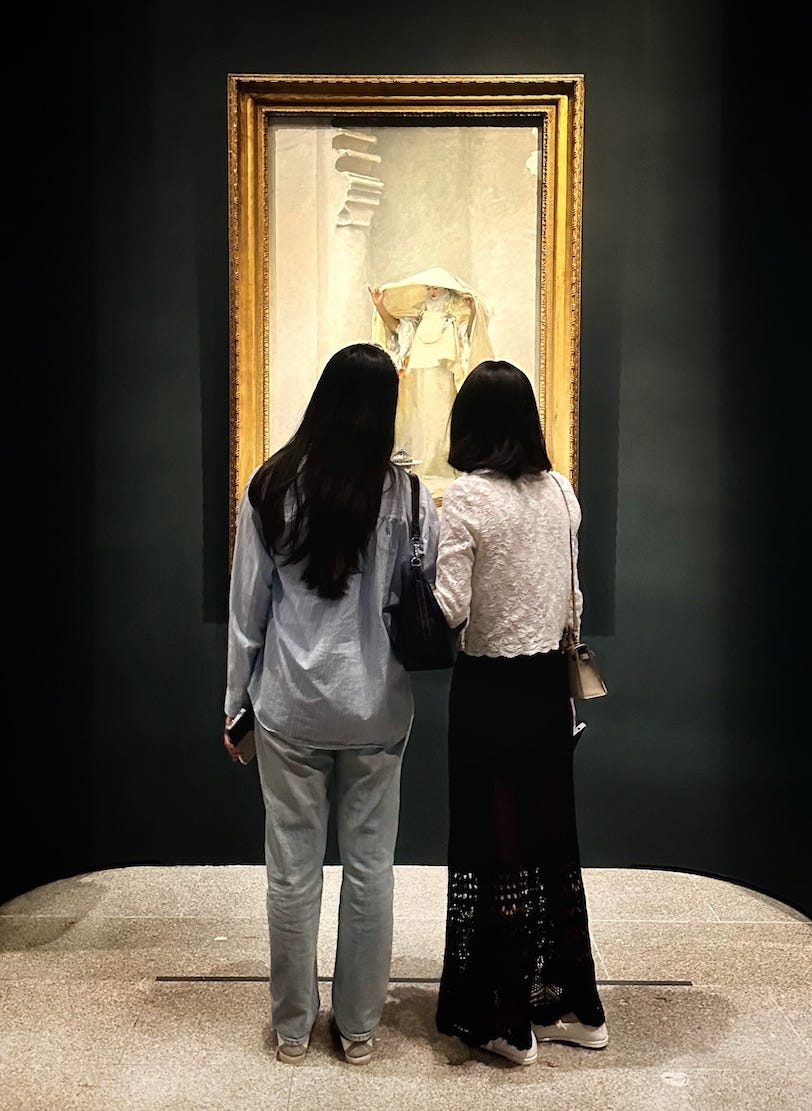


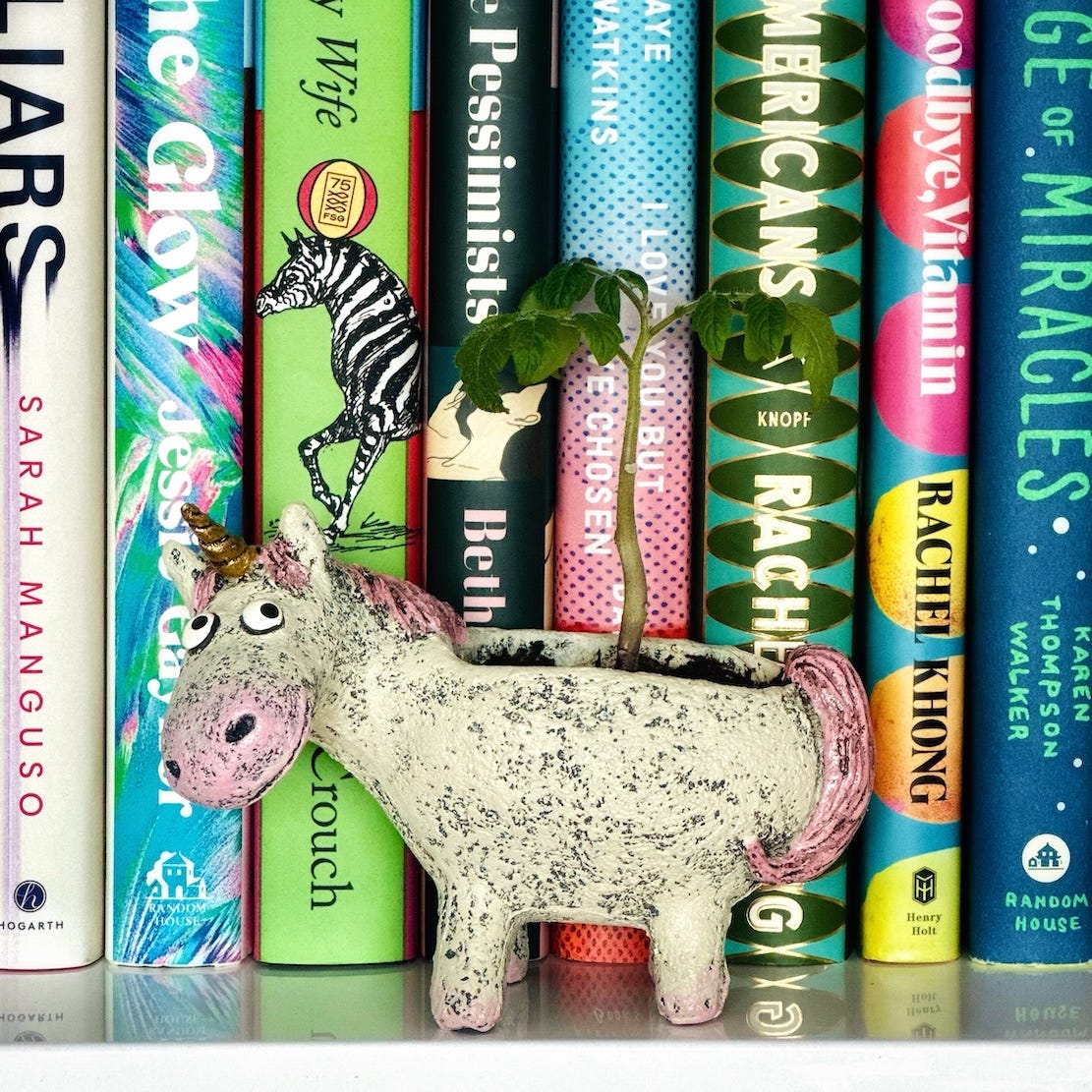

Great post. I think I need to memorize the four points: Be open, be present, be human, be changed. It all makes sense.
Two things:
1) this was just fantastic; I’m going to be thinking about it for days, and
2) I’m absolutely in love with Gnocchi 🥰